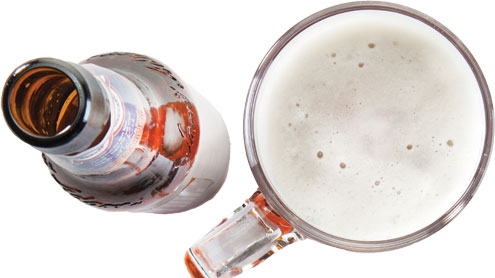 Planning on hosting a party at your off-campus house or apartment for some friends? You may end up drinking more than you would on a normal night out.
Planning on hosting a party at your off-campus house or apartment for some friends? You may end up drinking more than you would on a normal night out.
Party hosts consume an average of nine drinks to guests’ seven and a half, a recent study in Addictive Behaviors found. The study, funded in part by the National Institute on Alcohol Abuse and Alcoholism, said at least 10 percent of students at a college plan an off-campus party any given weekend.
Cynthia Buettner, Ohio State University assistant professor and lead author of the study, said it was logical that off-campus party hosts drink more than guests.
“They know they’re not going to drive, they’re home and they probably started before everyone arrived,” Buettner said in an OSU Research News article.
The study took an online survey of more than 3,500 participants who reported their alcohol use on weekends between 2005 and 2007. About 12 percent of the participant pool reported having hosted weekend parties, with the majority of those parties being hosted off-campus.
University of Alabama junior Chelsea Pickett agreed with Buettner that off-campus party hosts might let their guards down while in their own homes.
“I feel like people who host off-campus parties don’t have to worry about driving or getting caught, so their inhibitions go out the window,” Pickett said.
However, the study noted that party hosts are more likely than guests to engage in at-risk behaviors like vandalism, verbal disputes, rioting and drunk driving.
The study also found that the opposite was true for on-campus parties: party hosts are less likely than guests to drink excessively or engage in dangerous behaviors.
Buettner’s research indicates that off-campus hosts are more likely to be wealthy males, affiliated with a greek organization and in their sophomore year or higher.
Brad Erthal, a senior majoring in economics, said he thinks the title’s conclusion is skewed.
“It looks like the study might be better titled ‘frat guys drink more than the average student,’ which would not be terribly interesting,” he said. “That being said, it will probably drive policies for dozens of institutions for decades or so.”
Erthal said he thinks UA and other colleges will likely utilize the findings at some point.
“There’s a study that still gets cited in the UA literature to justify making freshmen live on-campus where they found that grades were higher among on-campus freshmen,” Erthal said. “They’ll use this to justify campus alcohol policies. Not sure how they’ll spin it, but use it however they want.”
As Erthal suggested, Buettner hopes universities will use the findings to assist in intervention policies among students.
She believes subsequent research might reveal that students who host parties repeat their behavior often and that these students could be better advised to “party smart.”
“Party hosts set the context for the attendees. They decide what kind of drinks are going to be there and how many people are going to attend,” Buettner said. “So if you could get people to think about hosting a party in a particular way, you could reduce the risks for the people who attend.”







